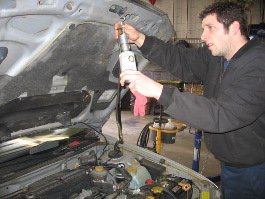We have been having record breaking heat here in Denver and throughout our state. There have been major wildfires and severe drought conditions and it doesn’t look like the record heat is going to be changing any time soon. Since we usually use our air conditioning a lot more during the hot weather, it’s even more important we find out, “how is our car cooling system working?” Is it functioning properly so it can do the job it was designed to do?
A typical car driving down the highway will produce enough heat to warm two average-sized homes! That is a lot of heat! This is the amount of heat that needs to be diverted away from your car’s engine to keep it running the way it is suppose to run. The job of your car cooling system is to maintain a constant engine temperature whether the air temperature outside is 100 degrees or 5 degrees below zero. If the temperature of the engine is too low the car’s emissions will go up and you will get lousy gas mileage. But if the temperature of the engine gets too hot and stays that way for too long, it will cause costly damage and great inconvenience to you.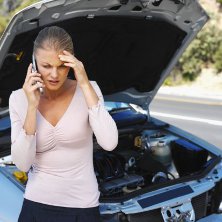 If you would like to avoid all the inconvenience and damage that a faulty cooling system can cause or you would like to know more about how a car cooling system works, read our blog “Is It Time For a Cooling System Flush? Then give us a call at (303) 691-2760 or come in and see us and let us know what we can do to help.
If you would like to avoid all the inconvenience and damage that a faulty cooling system can cause or you would like to know more about how a car cooling system works, read our blog “Is It Time For a Cooling System Flush? Then give us a call at (303) 691-2760 or come in and see us and let us know what we can do to help.

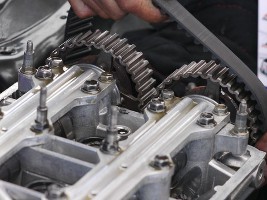
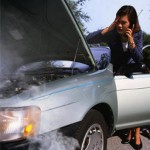
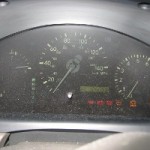
 A question we often hear at our shop is “why is my check engine light flashing?” There is not always a simple and quick answer to this question.
A question we often hear at our shop is “why is my check engine light flashing?” There is not always a simple and quick answer to this question.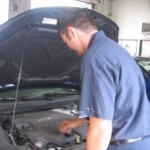
 Your cooling system is what keeps your car from having a meltdown, so have it checked every time you have a routine service. All of the parts that make up the cooling system have one goal, moving coolant around the engine so it can absorb and dissipate heat. The system is made up of the following parts: radiator, radiator top hose, radiator bottom hose, water pump, thermostat, thermostat housing, electric cooling fan, and a thermo-time switch.
Your cooling system is what keeps your car from having a meltdown, so have it checked every time you have a routine service. All of the parts that make up the cooling system have one goal, moving coolant around the engine so it can absorb and dissipate heat. The system is made up of the following parts: radiator, radiator top hose, radiator bottom hose, water pump, thermostat, thermostat housing, electric cooling fan, and a thermo-time switch.
 Question from Reader: What causes the oil pressure light to appear when I stop? I checked the dipstick, it’s okay and I still have another thousand miles before I’m due for an oil change.
Question from Reader: What causes the oil pressure light to appear when I stop? I checked the dipstick, it’s okay and I still have another thousand miles before I’m due for an oil change.